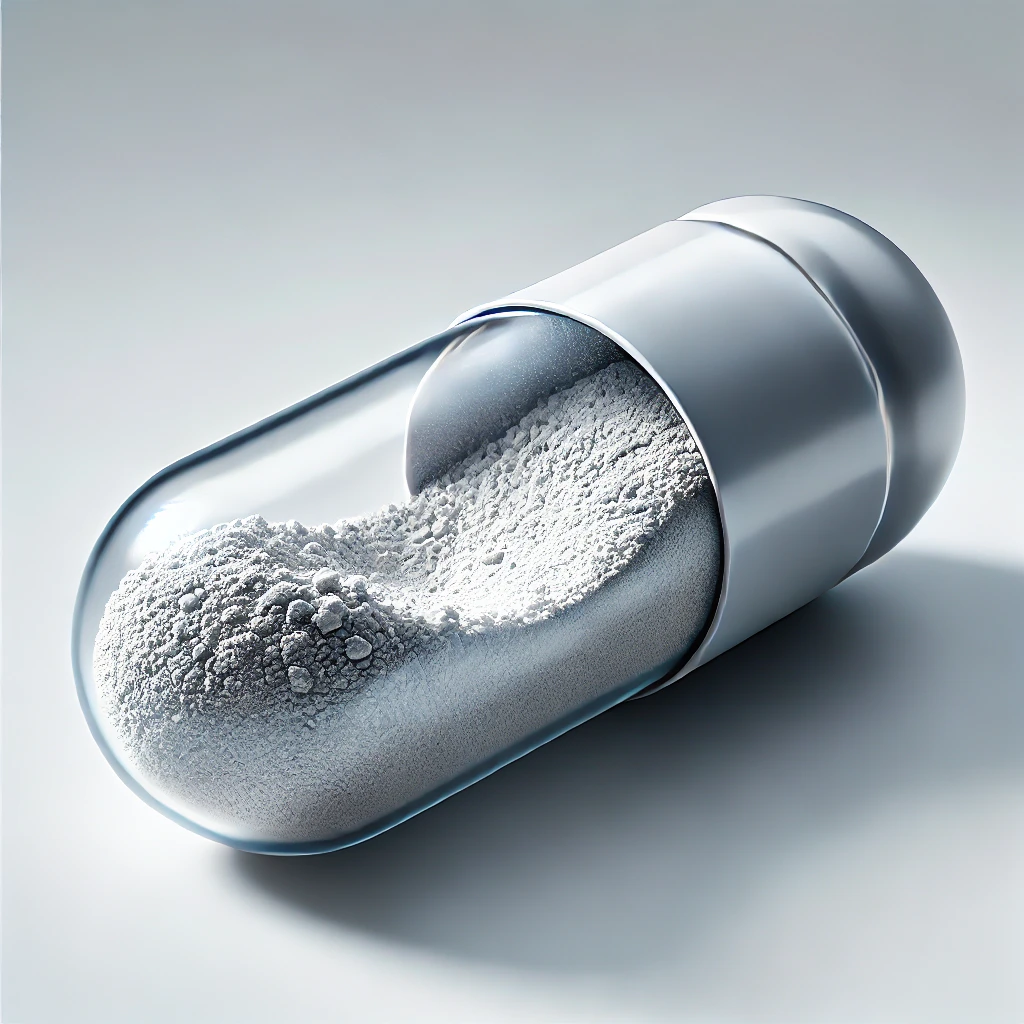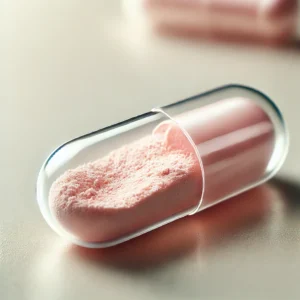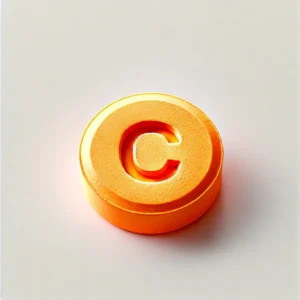
Zinc Supplements Pros: 8 Powerful Benefits to Boost Your Health and Wellness
- Read time for this section: ~ 2 mins.
- Immune Support: Can reduce the duration of the common cold, though it doesn’t prevent it.
- Cardiovascular Health: Shown to lower triglycerides and total cholesterol, potentially reducing heart disease risk. Also improves glycemic control and reduces inflammatory markers.
- Blood Sugar Management: Significantly improves markers like fasting glucose and HbA1c, which is beneficial for diabetes management.
- Skin Health: Effective in treating inflammatory acne, with both oral and topical applications showing benefits. May also help with other inflammatory skin conditions.
- Male Fertility: Particularly when combined with folate, it can improve sperm concentration, morphology, and overall male fertility.
- COVID-19: Associated with a reduced risk of mortality in patients.
- Wound Healing: Shows promise in supporting the healing of pressure injuries (bedsores) and improving wound healing outcomes.
- In patients with metabolic disorders: Helps reduce triglycerides, total cholesterol, and fasting blood glucose, contributing to lower risk of metabolic disorders like diabetes and heart disease.
- Zinc Sulfate: One of the most commonly used forms, often found in supplements for general health.
- Zinc Gluconate & Zinc Acetate: Often used in cold treatments, sometimes common in cold remedies like lozenges.
- Zinc Oxide: Less commonly used in supplements but frequently found in topical applications for skin issues like diaper rash and sun protection.
- Zinc Picolinate and Zinc Citrate: Known for their higher absorption rates, making them good options for those needing better bioavailability.
Dosages are based on studies identified in the review
- Common Dosage Range: 30-50 mg/day of elemental zinc is most commonly used.
- Full Dosage Range: Varies from 10-660 mg/day, though higher doses are rare and generally not advisable.
- Typical dosages: 22-30 mg/day and 30-50 mg/day (of elemental zinc).
- Higher dosages: 50-100 mg/day are used less frequently (of elemental zinc).
- Very high dosages: Up to 660 mg/day have been used in rare cases but are not advisable.
- Topical Formulations: Typically contain 1.2-5% zinc for treating skin conditions.
- Safety Considerations: The NIH’s tolerable upper intake level is 40 mg/day for adults, including during pregnancy and lactation.
- Example:
$15 for a bottle of 100 capsules. Taking 1 capsule daily will last ~ 3.3 months.
- Red Meat: Beef, pork, and lamb are among the richest sources.
- Poultry: Chicken and turkey also provide good amounts.
- Seafood: Oysters are particularly high in zinc, followed by crab, lobster, and shrimp.
- Dairy: Milk, cheese, and yogurt contribute to zinc intake.
- Legumes: Chickpeas, lentils, and beans are good plant-based sources, though zinc is less bioavailable in these forms.
- Nuts and Seeds: Pumpkin seeds, hemp seeds, and cashews are high in zinc.
- Whole Grains: Quinoa, brown rice, and oats provide zinc, though phytates in grains can reduce absorption.
- Fortified Foods: Some breakfast cereals and snack bars are fortified with zinc to enhance intake.
- Upper Intake Limit: The NIH recommends a tolerable upper intake level of 40 mg/day for adults, including during pregnancy and lactation, to avoid adverse effects.
- Potential Side Effects: High doses of zinc can cause nausea, vomiting, loss of appetite, stomach cramps, diarrhea, and headaches.
- Copper Deficiency: Excessive zinc intake can interfere with copper absorption, potentially leading to a deficiency. Consider supplements that include copper if taking high doses of zinc.
- Interactions with Medications: Zinc can interact with certain medications, such as antibiotics and diuretics, potentially reducing their effectiveness. Consult with a healthcare provider before starting supplementation.
- Long-Term Use: Prolonged use of high-dose zinc supplements can lead to long-term health issues, such as a weakened immune function, neurological problems and bodily weakness.
Zinc Supplements Pros: 8 Powerful Benefits to Boost Your Health and Wellness
What is Zinc?
Let’s start by introducing zinc, an essential trace mineral that plays a crucial role in our health. Although our bodies only require small amounts, zinc’s importance shouldn’t be underestimated. It’s present in every cell and is involved in numerous biological processes, from immune system support to wound healing.
Zinc is a key component in over 300 enzyme reactions in our body, making it integral to various bodily functions. It contributes to DNA synthesis, protein production, and many other processes that keep our bodies functioning properly.
Health Benefits
1. Immune System Booster
When it comes to keeping those pesky germs at bay, zinc is your body’s secret weapon. A systematic review by Wang et al. (2020) found that zinc supplementation can significantly reduce the duration of the common cold by about 2.25 days. This suggests that zinc could potentially help you recover faster from a cold.
However, it’s important to note that the same study found no significant effect on cold prevention. This means that while zinc might not prevent you from catching a cold, it could potentially help shorten its duration once you have one, ensuring you bounce back quicker when you do.
2. Heart Health Hero
Let’s get to the heart of the matter – literally. Zinc plays a crucial role in maintaining cardiovascular health. A meta-analysis by Nazari et al. (2023) found that zinc supplementation can significantly reduce triglycerides and total cholesterol levels. Lower levels of these lipids are associated with a reduced risk of heart disease.
But that’s not all – the same study also found that zinc supplementation had beneficial effects on glycemic control and inflammatory markers. It significantly reduced fasting blood glucose, HbA1c, and inflammatory markers like C-reactive protein (CRP), interleukin-6 (IL-6), and tumor necrosis factor-alpha (TNF-α). Talk about a multi-tasker!
Another meta-analysis by Ranasinghe et al. (2015) corroborated these findings, showing that zinc supplementation led to significant reductions in total cholesterol, LDL cholesterol, and triglycerides. While zinc might not be able to mend a broken heart, it can certainly help keep your physical heart in good shape!
3. Blood Sugar Balance
For those watching their blood sugar levels, zinc might be a helpful ally. A comprehensive meta-analysis by Wang et al. (2019) revealed that zinc supplementation could significantly improve several markers of glycemic control. This includes reductions in fasting glucose, 2-hour postprandial glucose, fasting insulin, and HbA1c levels.
What’s more, the study found that zinc supplementation also reduced levels of high-sensitivity C-reactive protein (hs-CRP), an inflammatory marker associated with diabetes and cardiovascular risk. In simpler terms, zinc might help your body manage blood sugar more effectively and reduce inflammation, which is great news for anyone concerned about diabetes or metabolic health.
4. Skin Deep: Zinc, acne and inflammatory skin conditions
Attention, skincare enthusiasts! If you’re battling acne, zinc might be the secret weapon you’ve been looking for. A meta-analysis by Yee et al. (2020) found that people with acne tend to have lower serum zinc levels compared to those without acne. The good news? Zinc supplementation was associated with significant improvements in inflammatory acne lesions, including both papules and pustules.
Interestingly, the study found that both oral and topical zinc treatments were effective, with oral zinc showing significant efficacy. So, while zinc might not replace your favorite skincare routine, it could be a valuable addition to your clear skin arsenal, working from both the inside and outside.
Zinc’s benefits for skin health extend beyond just acne. A systematic review by Dhaliwal et al. (2019) examined the effects of zinc supplementation on various inflammatory skin conditions. The results were mixed but promising:
- For acne vulgaris, 10 out of 14 studies showed some benefit.
- For hidradenitis suppurativa, all 3 studies showed benefit.
- For atopic dermatitis and diaper dermatitis, some studies showed benefit.
- However, for psoriasis and rosacea, the studies didn’t show significant benefits.
While these results are encouraging, especially for conditions like acne and hidradenitis suppurativa, more research is needed to fully understand zinc’s role in treating various skin conditions.
5. Male Fertility Boost
Gentlemen, listen up! If you’re concerned about fertility, zinc might be worth your attention. A meta-analysis by Zhao et al. (2016) found that infertile males tend to have lower seminal plasma zinc levels compared to fertile controls. The silver lining? Zinc supplementation was associated with improvements in several sperm parameters, including semen volume, sperm motility, and normal sperm morphology.
But that’s not all – another systematic review by Buhling et al. (2019) also highlighted the potential benefits of zinc for male fertility. They found that a combination of zinc and folic acid showed promising results for improving sperm concentration.
Adding to this body of evidence, a systematic review and meta-analysis by Irani et al. (2017) specifically examined the effects of folate and zinc supplementation on male subfertility. Their findings were quite intriguing:
- Folate supplementation alone significantly increased sperm concentration.
- When combined with zinc, the benefits were even more pronounced. Folate plus zinc supplementation not only increased sperm concentration but also improved sperm morphology.
- Interestingly, neither folate alone nor folate plus zinc showed significant effects on sperm motility.
- The study also found that folate plus zinc supplementation increased serum folate levels, which could have additional health benefits.
These findings suggest that the combination of folate and zinc could be particularly beneficial for men dealing with subfertility issues, especially in terms of improving sperm concentration and morphology.
While zinc isn’t a magic bullet for fertility issues, it could be a helpful nutrient to consider as part of a broader approach to male reproductive health. The synergistic effects of zinc with other nutrients like folate highlight the importance of a balanced approach to nutrition when addressing fertility concerns.
6. COVID-19: Zinc to the Rescue?
In the wake of the COVID-19 pandemic, researchers have been exploring various nutrients that might help combat the virus. Interestingly, zinc has shown some promise in this area. A meta-analysis by Rheingold et al. (2023) found that COVID-19 patients treated with zinc supplementation had a significantly reduced risk of mortality compared to those not treated with zinc.
These findings were supported by another meta-analysis by Tabatabaeizadeh (2022), which also found that zinc supplementation was associated with a significantly lower risk of mortality in COVID-19 patients. The study showed a 43% reduction in the odds of mortality for patients receiving zinc supplementation.
A third study by Olczak-Pruc et al. (2022) further corroborated these findings, showing lower in-hospital mortality rates in the zinc supplementation group compared to the control group. While this doesn’t mean zinc is a cure for COVID-19, it suggests that maintaining adequate zinc levels could be beneficial for overall immune health and potentially improving outcomes in COVID-19 patients.
7. Wound Healing: Zinc’s Healing Touch
If you’re dealing with a stubborn wound, zinc might be able to lend a helping hand. A systematic review by Song et al. (2020) focused on the effects of zinc therapy on pressure injuries, also known as bedsores. The meta-analysis showed significantly better healing rates in the zinc intervention group compared to the control group, with a 44% higher likelihood of healing.
The study found that zinc therapy led to greater reductions in pressure injury area and improved Pressure Ulcer Scale for Healing (PUSH) scores. While more research is needed, these findings suggest that zinc could play a valuable role in wound healing, particularly for pressure injuries.
8. Cardiometabolic Risk Factors: A Broader Perspective
We’ve already touched on zinc’s benefits for heart health and blood sugar control, but let’s zoom out for a broader perspective. A meta-analysis by Khazdouz et al. (2019) examined zinc supplementation in patients with metabolic disorders. The findings were quite impressive:
- Zinc supplementation significantly decreased triglycerides, total cholesterol, and VLDL.
- It also led to significant decreases in fasting blood glucose and HbA1c.
- However, it didn’t show significant effects on blood pressure or anthropometric measures like weight and BMI.
These results suggest that zinc supplementation could be a valuable tool in managing various cardiometabolic risk factors, potentially reducing the risk of conditions like diabetes and heart disease.
Conclusion
In conclusion, zinc is a fascinating and essential nutrient that plays a crucial role in numerous aspects of our health. While the research on zinc supplementation is promising, it’s important to approach it with a balanced perspective. As with any dietary change or supplement regimen, it’s always best to consult with a healthcare professional to determine what’s right for you.
So, there you have it – the lowdown on zinc, from its immune-boosting properties to its potential role in fighting acne and supporting heart health. Who knew such a tiny mineral could pack such a powerful punch? Next time you’re pondering over the periodic table, give a little nod to zinc – your body’s hardworking, behind-the-scenes superhero!
Effective dosages used in the studies:
- Types of zinc:
- Zinc sulfate
- Zinc gluconate
- Zinc acetate
- Zinc oxide (less common)
- Dose ranges:
- Most common: 15-50 mg/day elemental zinc
- Full range: 10-660 mg/day
- Typical dosages:
- 22-30 mg/day
- 30-50 mg/day
- 50-100 mg/day (less common)
Key points:
- Zinc sulfate and zinc gluconate were the most frequently used forms
- 30-50 mg/day elemental zinc was the most common dosage range
- Some studies used higher doses up to 100-240 mg/day, but these were less common & not advisable
- A few studies used very high doses (e.g. 660 mg/day) but these were rare & not advisable
- Topical formulations typically used 1.2-5% zinc concentrations for skin problems
- Oral solutions used 10 ml zinc gluconate in one study
- According to the National Institutes of Health (NIH), the tolerable upper intake level of 40 mg/day applies for adult males, females, and during pregnancy/lactation.
Considerations
When purchasing zinc supplements, there are several important factors to consider. First, look for reputable brands that undergo third-party testing to ensure quality and purity. Check the form of zinc used, as some forms like zinc picolinate or zinc citrate may be more easily absorbed by the body. Pay attention to the dosage, ensuring it aligns with recommended daily allowances unless otherwise directed by a healthcare provider. Be aware of potential interactions with other medications or supplements you’re taking, particularly antibiotics or iron supplements. Consider combination supplements that include copper, as high zinc intake can interfere with copper absorption.
References
- Buhling, K., Schumacher, A., Eulenburg, C. zu, & Laakmann, E. (2019). Influence of oral vitamin and mineral supplementation on male infertility: A meta-analysis and systematic review. Reproductive BioMedicine Online, 39(2), 269–279. https://doi.org/10.1016/j.rbmo.2019.03.099
- Dhaliwal, S., Nguyen, M., Vaughn, A. R., Notay, M., Chambers, C. J., & Sivamani, R. K. (2020). Effects of Zinc Supplementation on Inflammatory Skin Diseases: A Systematic Review of the Clinical Evidence. American Journal of Clinical Dermatology, 21(1), 21–39. https://doi.org/10.1007/s40257-019-00484-0
- Irani, M., Amirian, M., Sadeghi, R., Lez, J. L., & Roudsari, R. L. (2017). The Effect of Folate and Folate Plus Zinc Supplementation on Endocrine Parameters and Sperm Characteristics in Sub-Fertile Men: A Systematic Review and Meta-Analysis. Urology Journal, 14(5), Article 5. https://doi.org/10.22037/uj.v14i5.3772
- Khazdouz, M., Djalalinia, S., Sarrafi Zadeh, S., Hasani, M., Shidfar, F., Ataie-Jafari, A., Asayesh, H., Zarei, M., Gorabi, A. M., Noroozi, M., & Qorbani, M. (2020). Effects of Zinc Supplementation on Cardiometabolic Risk Factors: A Systematic Review and Meta-analysis of Randomized Controlled Trials. Biological Trace Element Research, 195(2), 373–398. https://doi.org/10.1007/s12011-019-01870-9
- Nazari, M., Ashtary-Larky, D., Nikbaf-Shandiz, M., Goudarzi, K., Bagheri, R., Dolatshahi, S., Omran, H. S., Amirani, N., Ghanavati, M., & Asbaghi, O. (2023). Zinc supplementation and cardiovascular disease risk factors: A GRADE-assessed systematic review and dose-response meta-analysis. Journal of Trace Elements in Medicine and Biology, 79, 127244. https://doi.org/10.1016/j.jtemb.2023.127244
- Olczak-Pruc, M., Szarpak, L., Navolokina, A., Chmielewski, J., Panasiuk, L., Juárez-Vela, R., Pruc, M., Swieczkowski, D., Majer, R., Rafique, Z., & Peacock, F. W. (2022). The effect of zinc supplementation on the course of COVID-19 – A systematic review and meta-analysis. Annals of Agricultural and Environmental Medicine, 29(4), 568–574. https://doi.org/10.26444/aaem/155846
- Ranasinghe, P., Wathurapatha, W., Ishara, M., Jayawardana, R., Galappatthy, P., Katulanda, P., & Constantine, G. (2015). Effects of Zinc supplementation on serum lipids: A systematic review and meta-analysis. Nutrition & Metabolism, 12(1), 26. https://doi.org/10.1186/s12986-015-0023-4
- Rheingold, S. Z., Raval, C., Gordon, A. M., & Hardigan, P. (n.d.). Zinc Supplementation Associated With a Decrease in Mortality in COVID-19 Patients: A Meta-Analysis. Cureus, 15(6), e40231. https://doi.org/10.7759/cureus.40231
- Song, Y.-P., Wang, L., Yu, H.-R., Yuan, B.-F., Shen, H.-W., Du, L., Cai, J.-Y., & Chen, H.-L. (2020). Zinc Therapy Is a Reasonable Choice for Patients With Pressure Injuries: A Systematic Review and Meta-Analysis. Nutrition in Clinical Practice, 35(6), 1001–1009. https://doi.org/10.1002/ncp.10485
- Tabatabaeizadeh, S.-A. (2022). Zinc supplementation and COVID-19 mortality: A meta-analysis. European Journal of Medical Research, 27(1), 70. https://doi.org/10.1186/s40001-022-00694-z
- Wang, M. X., Win, S. S., & Pang, J. (2020). Zinc Supplementation Reduces Common Cold Duration among Healthy Adults: A Systematic Review of Randomized Controlled Trials with Micronutrients Supplementation. The American Journal of Tropical Medicine and Hygiene, 103(1), 86–99. https://doi.org/10.4269/ajtmh.19-0718
- Wang, X., Wu, W., Zheng, W., Fang, X., Chen, L., Rink, L., Min, J., & Wang, F. (2019). Zinc supplementation improves glycemic control for diabetes prevention and management: A systematic review and meta-analysis of randomized controlled trials. The American Journal of Clinical Nutrition, 110(1), 76–90. https://doi.org/10.1093/ajcn/nqz041
- Yee, B. E., Richards, P., Sui, J. Y., & Marsch, A. F. (2020). Serum zinc levels and efficacy of zinc treatment in acne vulgaris: A systematic review and meta-analysis. Dermatologic Therapy, 33(6), e14252. https://doi.org/10.1111/dth.14252
- Zhao, J., Dong, X., Hu, X., Long, Z., Wang, L., Liu, Q., Sun, B., Wang, Q., Wu, Q., & Li, L. (2016). Zinc levels in seminal plasma and their correlation with male infertility: A systematic review and meta-analysis. Scientific Reports, 6, 22386. https://doi.org/10.1038/srep22386

